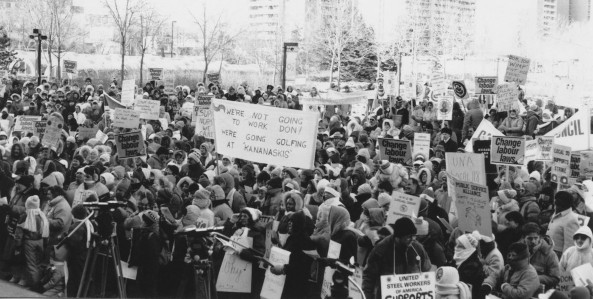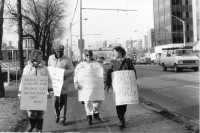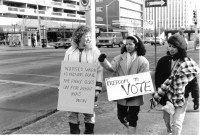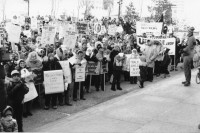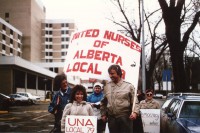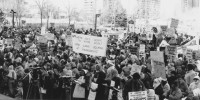Remembering the 1988 Nurses Strike
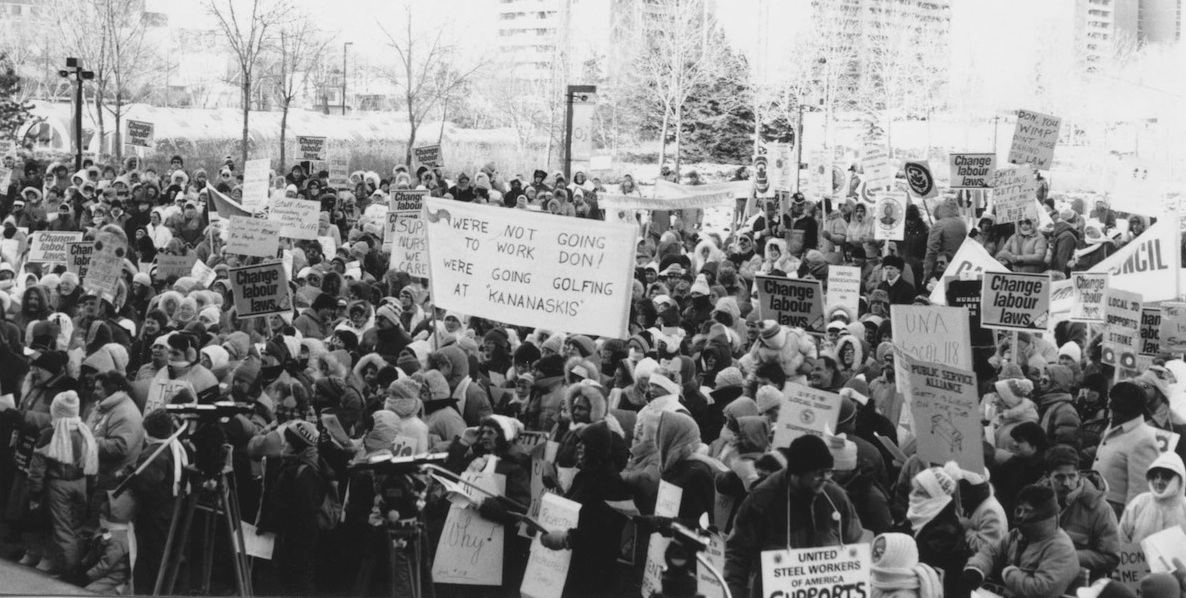 Dressed like arctic explorers in parkas and scarves, they braced themselves for a cold and desolate winter on the prairies. For the next 19 days, a group of brave union members fought an unreasonable employer and the most brutal deep freeze in years for their right to a fair collective agreement.
Dressed like arctic explorers in parkas and scarves, they braced themselves for a cold and desolate winter on the prairies. For the next 19 days, a group of brave union members fought an unreasonable employer and the most brutal deep freeze in years for their right to a fair collective agreement.
They were the United Nurses of Alberta.
On the morning of Jan. 25, 1988, more than 14,000 nurses at hospitals across Alberta walked off the job, beginning the last province-wide strike by UNA members. This was the fourth strike by nurses represented by UNA and the first-ever strike by nurses employed at the three Crown Hospitals – the Foothills Hospital, the Alberta Children’s Hospital, and the Glenrose Hospital.
Faced with months of turbulent negotiations and greedy employers demanding rollbacks, UNA members had no choice but to take this drastic action.
Documentary produced in 2004 to celebrate 100 Years of Nursing on the Prairies
In late 1987, UNA began negotiations with employers who, at the outset, demanded massive takeaways and rollbacks that union members would not accept. Following the previous hospital strike in 1982, the government had removed the legal right of hospital nurses to take strike action.
When the employers were unwilling to compromise on their rollback proposals at the negotiating table in 1988, strike action became inevitable. UNA members had reiterated the long-held position their union accepts no rollbacks, no concessions, no regressions, and no takeaways.
On Jan. 22, UNA members were asked to vote on the question: “Are you willing to go on strike for an improved offer?”
Despite an attempted intervention by the employers, who persuaded the Alberta Labour Relations Board to charge the union with bargaining in bad faith and order a stop to the vote, UNA held the vote anyway.
UNA members voted overwhelmingly in favour of strike action. Nurses walked off the job and into the cold at 7:30 a.m. on Jan. 25, 1988.
The same day, the LRB presented UNA with a cease-and-desist order, then filed rulings with the courts accusing the UNA of “threatening to strike” and “causing a strike.”
At this point, some employers applied to the LRB for the right to cease the collection of union dues for six months. The LRB hearing to address this application was not held before the end of the strike. Unions from across Canada sent letters of support to UNA, followed shortly by financial support. Alberta Federation of Labour president Dave Werlin vowed, “Alberta workers would not let UNA go under financially.”
Two days after the strike began, acting Attorney General Elaine McCoy charged UNA with criminal contempt of court and individual nurses began to be served with civil contempt of court charges. At the conclusion of the strike more than 75 individual charges would be heard.
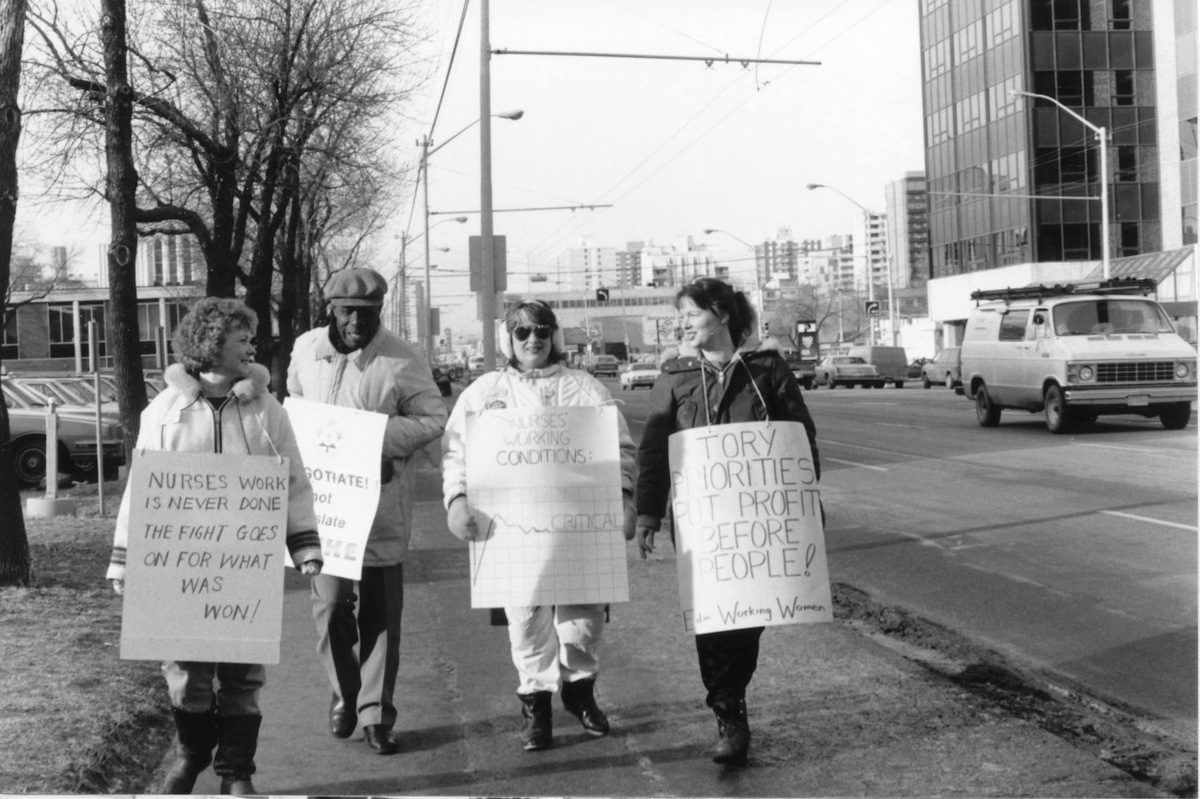
On Jan. 29, UNA was served with notice to appear at a criminal contempt hearing on Feb. 1. The Alberta government demanded a $1-million fine and the seizure of UNA’s funds and assets, the latter based on a seldom-used action from Common Law.
On Feb. 4, a court found UNA guilty of criminal contempt of court and fined it $250,000 to be paid within five days.
Individual nurses were also threatened with discipline, including termination, if they did not return to work immediately. Undeterred by the threats, nurses insisted they would walk the picket lines until they secured a fair negotiated collective agreement.
UNA paid the $250,000 criminal contempt fine on Feb. 9, and was immediately served, at the courthouse, with a notice of motion of a second criminal contempt charge.
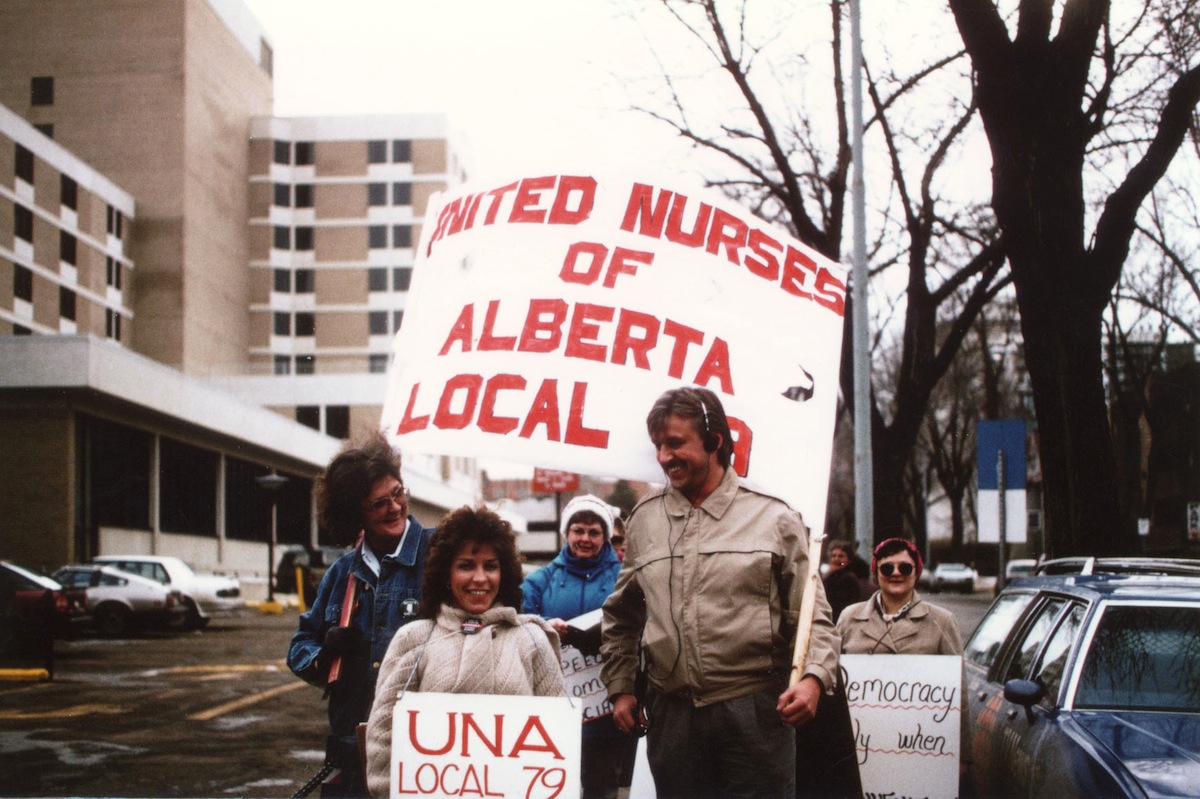
Individual nurses began to receive termination notices on Feb. 10. In late night negotiations, UNA and the employers had all but agreed to the terms of a settlement, but the employers refused to withdraw their application to hold back union dues, and no settlement was reached.
Fines of up to $1,000 each for civil contempt began to be imposed on individual nurses on Feb. 11, the same day the employers tabled an improved offer and an agreement to withdraw their applications to the LRB.
The next day, hearings on the second criminal contempt charge began, and UNA was eventually fined $150,000. The same day, UNA members voted to accept the employers’ latest improved offer and a settlement was reached.
Nurses returned to work Feb. 13, 1988 with a negotiated collective agreement. With the help of donations from other unions and individuals, UNA paid approximately $426,750 in fines.
The results of the 1988 strike were not immediately evident in the negotiated settlement, because the most important victory was forcing the employer to remove the takeaways from the table. The 1988 strike set the stage for UNA to make signifant gains for nurses in the 1990 contract negotiations. This strike helped define UNA members as a force that would not hesitate take a stand for positive change in our health care system.
(This story was originally published on February 12, 2013)

